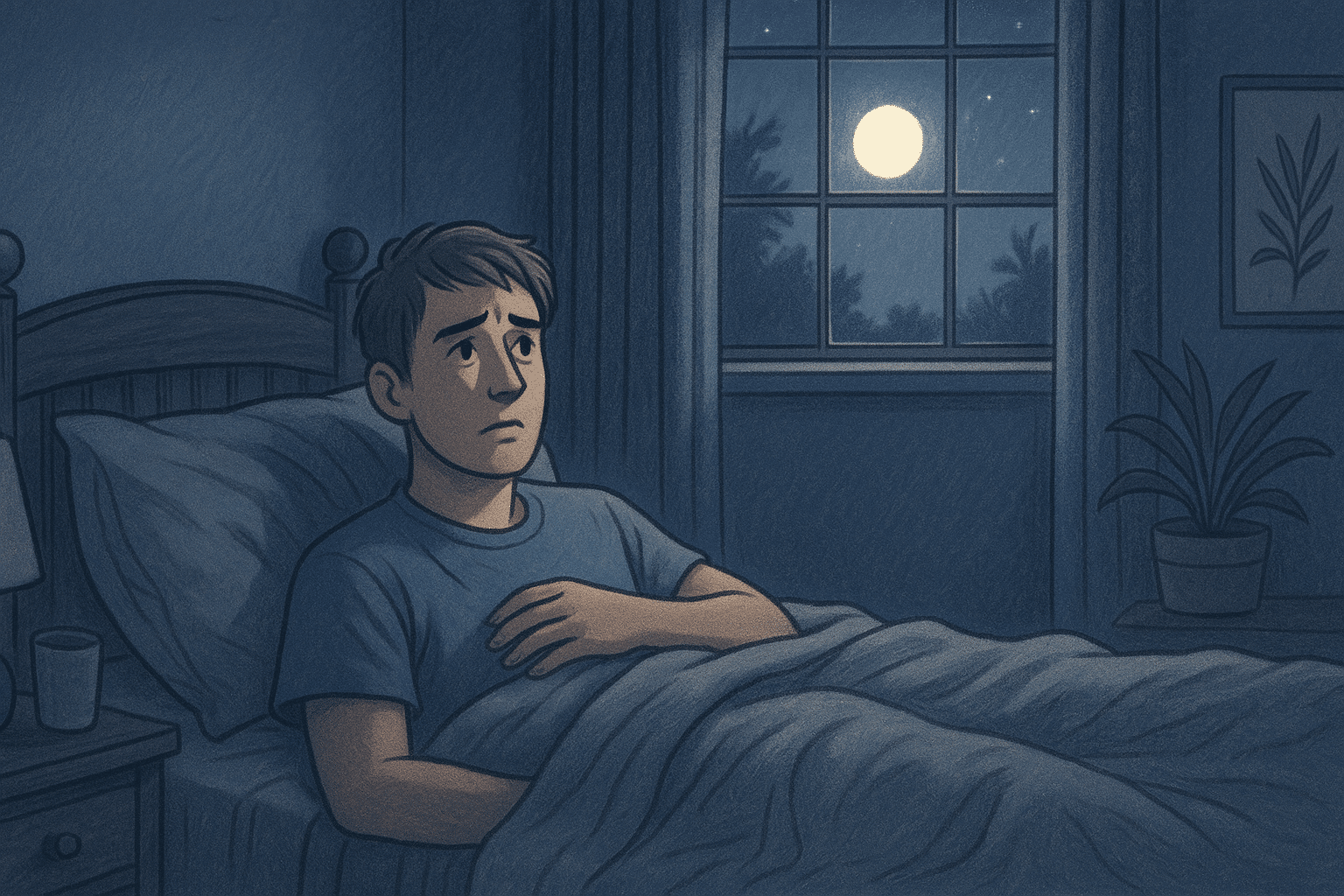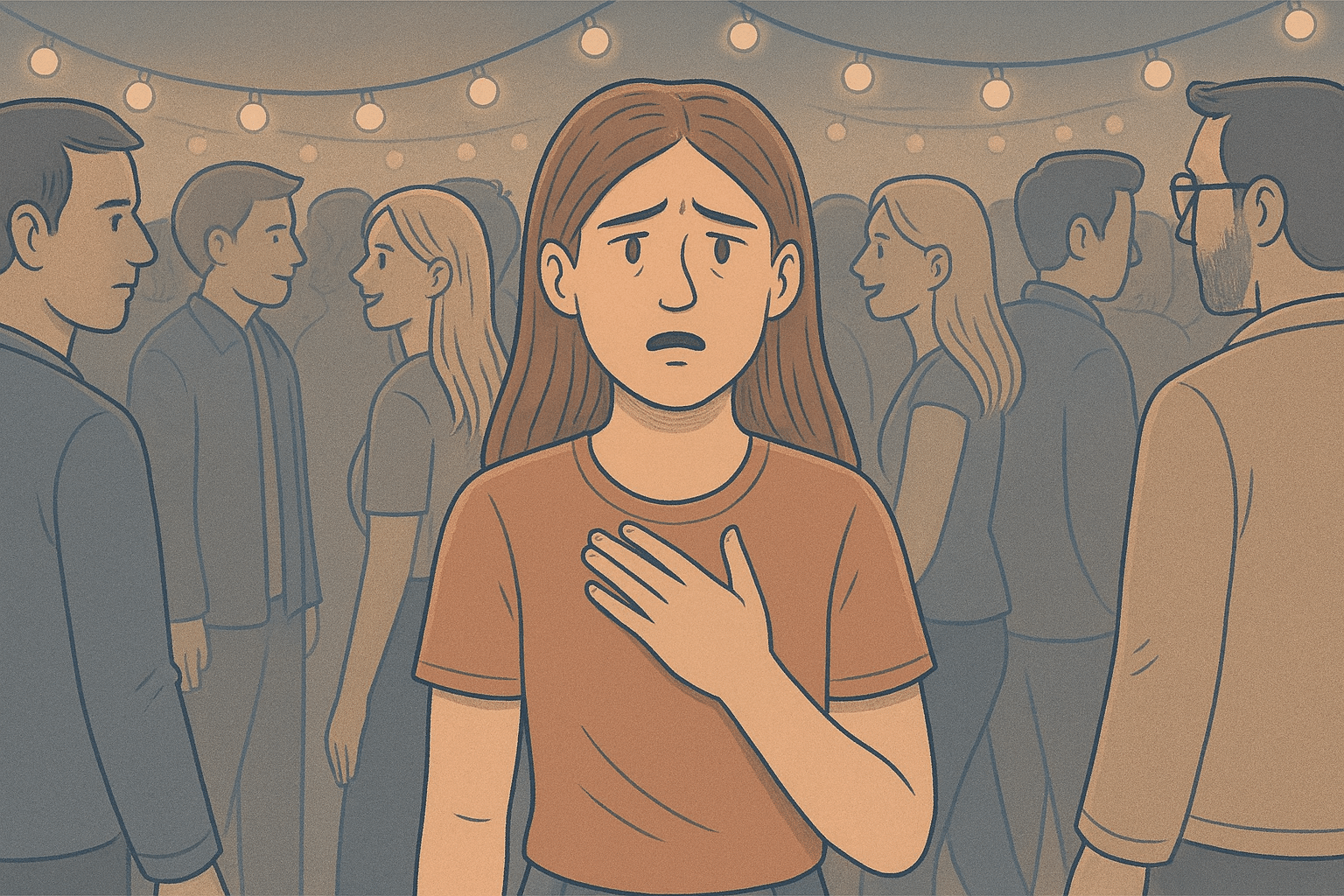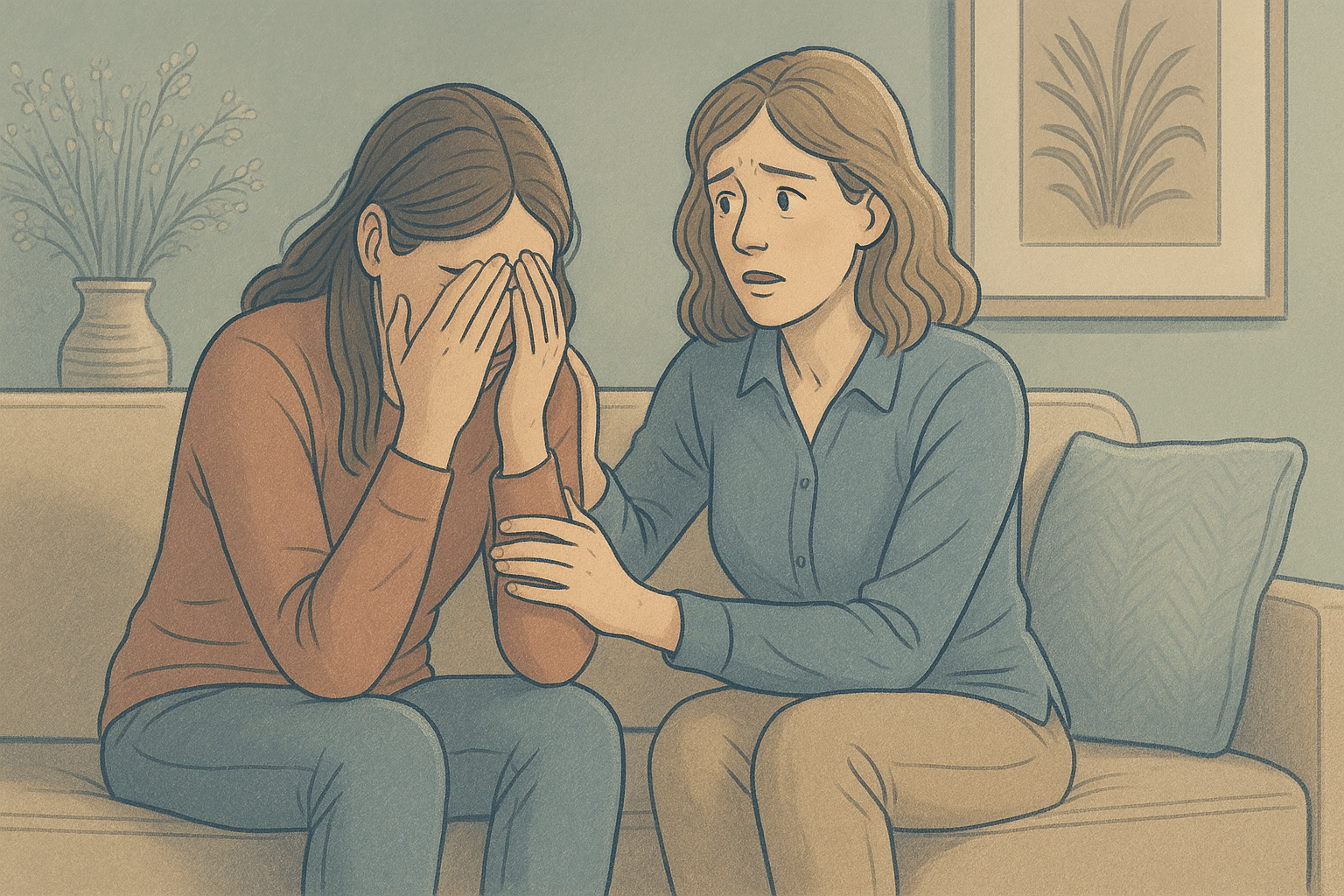Key Takeaways
- Untreated social anxiety can lead to chronic physical health problems including compromised immunity, digestive issues, and increased risk of cardiovascular disease.
- The psychological impact of long-term social anxiety includes increased risk of depression, additional anxiety disorders, and negative thought patterns that become more entrenched over time.
- Relationship difficulties often emerge as social anxiety persists, including isolation, challenges with intimacy, and missed personal and professional opportunities.
- With proper treatment including therapy, medication when appropriate, and lifestyle changes, even long-standing social anxiety can improve substantially.
- At A Mission for Michael, we specialize in evidence-based treatment approaches that address social anxiety and its long-term consequences through comprehensive programs across California, Minnesota, and Virginia.
The Silent Struggle
Social anxiety disorder often begins in adolescence, a critical period for developing social skills and identity. When left untreated during these formative years, it creates a foundation of avoidance and fear that can structure a person’s entire life.
Many individuals with social anxiety describe their experience as a constant internal battle that others cannot see, a performance of normalcy that requires tremendous energy while hiding intense discomfort.
What makes this struggle particularly difficult is that many people with social anxiety become experts at hiding their distress. They may appear composed on the outside while experiencing intense anxiety internally.
This disconnect between outer appearance and inner experience often leads to delayed diagnosis and treatment, allowing the condition to become more entrenched.
| A Mission For Michael: Expert Mental Health Care Founded in 2010, A Mission For Michael (AMFM) offers specialized mental health care across Southern California, Minnesota, and Virginia. Our accredited facilities provide residential and outpatient programs, utilizing evidence-based therapies such as CBT, DBT, and EMDR. Our dedicated team of licensed professionals ensures every client receives the best care possible, supported by accreditations from The Joint Commission and the California Department of Health Care Services. We are committed to safety and personalized treatment plans. Start your recovery journey with AMFM today! |
Physical Health Impacts of Untreated Social Anxiety
Living with untreated social anxiety means your body frequently experiences the physiological stress response without adequate recovery.
The stress hormones released during anxiety responses, particularly cortisol and adrenaline, are designed for short-term emergency situations. When these systems are chronically activated over months and years, they begin to damage various bodily systems.
This damage accumulates gradually, often manifesting as seemingly unrelated health problems that can be difficult to connect back to anxiety. Some of these physical symptoms include:
1. Sleep Disruption

The relationship between anxiety and sleep disturbance creates a vicious cycle that worsens both conditions over time.
Social anxiety often triggers rumination about past social interactions or worry about future ones, making it difficult to quiet the mind for sleep.
The resulting sleep deprivation further compromises emotional regulation, making anxiety symptoms more intense and harder to manage.
2. Weakened Immunity
Research shows that chronic stress suppresses immune function, and social anxiety creates precisely the type of persistent stress that compromises immunity.
The constant state of physiological arousal depletes resources the body needs for proper immune functioning, creating vulnerability to both acute and chronic health conditions.
3. Chronic Stress Response
When social anxiety persists for years, the body’s stress response system remains in a semi-activated state, rarely fully returning to baseline. This chronic elevation of stress hormones contributes to inflammation throughout the body, a known factor in numerous health conditions.
Individuals with untreated social anxiety commonly report symptoms like tension headaches, jaw pain from clenching, and unexplained muscle aches, all physical manifestations of persistent psychological stress.
Psychological Deterioration

The psychological impact of untreated social anxiety extends far beyond momentary nervousness in social situations.
1. Depression Risk
Untreated social anxiety significantly increases the risk of developing major depressive disorder. This connection stems from several factors, including the isolation that often accompanies social anxiety, the chronic stress it produces, and the impact on self-esteem.
When everyday interactions consistently trigger anxiety, life’s pleasures diminish while stress accumulates. This imbalance creates fertile ground for depression to develop.
2. Additional Anxiety Disorders
We frequently observe that long-standing social anxiety can “generalize” over time, expanding beyond social situations to include other anxiety disorders.
For example, someone who initially feels anxious only during public speaking might gradually develop anxiety about being observed in any context. This widening circle of anxiety makes treatment more complex and recovery more challenging.
3. Thought Pattern Changes
Untreated social anxiety gradually alters thought patterns, creating cognitive distortions that become increasingly automatic and difficult to recognize.
The mind becomes habituated to catastrophic thinking, mind-reading (assuming others are thinking negatively), personalizing neutral events, and discounting positive experiences.
These distorted thinking patterns eventually operate below conscious awareness, automatically filtering experiences in ways that maintain anxiety.
Relationship Consequences
Human connection forms the foundation of wellbeing, yet social anxiety directly interferes with the ability to form and maintain meaningful relationships.
The long-term consequences for social and emotional development can be profound, including:
1. Social Isolation
As social anxiety persists, the pattern of avoiding social situations typically expands rather than diminishes. What might begin as anxiety about large gatherings can gradually extend to smaller groups, then to one-on-one interactions, and eventually even to phone calls or text messages.
This progressive withdrawal leads to increasing social isolation that becomes self-reinforcing: the less a person practices social interaction, the more anxiety-provoking it becomes.
2. Difficulty With Intimacy

Lost intimacy is a major effect of social anxiety
Intimate relationships require vulnerability, self-disclosure, and the ability to manage conflict constructively, all areas that become extremely challenging with untreated social anxiety.
This can manifest as difficulty sharing personal information, reluctance to express needs or boundaries, and avoidance of conversations that might create tension.
3. Lost Opportunities
One of the most significant long-term effects of social anxiety is the accumulation of missed opportunities across all life domains.
From declining invitations to social events where meaningful connections might have formed, to avoiding dating experiences that could lead to partnerships, the impact compounds over decades.
These missed opportunities extend beyond personal relationships to professional networking, educational advancement, and participation in community. Over time, the gap widens between the life a person desires and the restricted life that anxiety has shaped.
Seeking Professional Help
While social anxiety can have profound long-term effects when left untreated, it’s equally important to emphasize that recovery is possible at any age and stage. Many individuals have achieved remarkable transformations after decades of untreated social anxiety.
The human capacity for change remains present throughout life, and neural pathways associated with anxiety can be modified through consistent practice with new thought and behavior patterns.
So if social anxiety has interfered with your daily functioning, seek professional help today. Successful long-term recovery typically involves a combination of professional treatment, supportive relationships, and ongoing personal practices that maintain progress.
Most individuals find that anxiety doesn’t disappear entirely but becomes manageable enough that it no longer dictates life choices.
Breaking Free from Untreated Social Anxiety with AMFM’s Specialized Care
At A Mission for Michael, we understand that seeking treatment for long-standing social anxiety requires tremendous courage, especially when the very nature of the condition makes reaching out feel overwhelming.
Our specialized anxiety treatment programs are designed specifically for individuals who have struggled with social anxiety for years or even decades. Through evidence-based approaches like Cognitive-Behavioral Therapy and gradual exposure techniques, our experienced clinicians help you rebuild social confidence while addressing the deeply ingrained thought patterns that maintain anxiety.

Our comprehensive treatment facilities provide the right environment that aids recovery.
With compassionate care delivered across our California, Virginia, and Washington locations, we provide the structured support and expert guidance necessary to reclaim the connected, fulfilling life that social anxiety has limited.
Recovery is possible at any age, and taking that first step toward treatment can prevent years of additional consequences while opening doors to possibilities you may have thought were permanently closed.
Frequently Asked Questions
Can untreated social anxiety go away on its own?
While some mild cases of social anxiety may improve without formal treatment, clinical social anxiety disorder rarely resolves completely without intervention.
More typically, untreated social anxiety tends to persist or worsen over time as avoidance patterns become more entrenched. The underlying vulnerability usually remains without specific strategies to address thought patterns and avoidance behaviors, making professional treatment essential for lasting improvement.
How does social anxiety differ from normal shyness?
Social anxiety disorder causes substantial distress and functional impairment, while shyness may cause discomfort but doesn’t significantly impair functioning. Those with social anxiety experience persistent fear across various social contexts and often include pronounced physical manifestations like racing heart, sweating, or trembling. Unlike shy individuals who may prefer smaller gatherings but don’t avoid important opportunities, social anxiety leads to significant avoidance that impacts life goals and relationships.
What age does social anxiety typically start?
Social anxiety disorder typically develops during adolescence, with the median age of onset around 13 years. This timing coincides with the developmental period when social awareness and concern about peer evaluation naturally increase. However, some individuals report symptoms beginning in early childhood, while others develop social anxiety later in life.
The earlier the onset, particularly during formative developmental periods, the more profound the potential impact on personality development and life trajectory.
Can social anxiety cause physical illness?
While social anxiety doesn’t directly cause most physical illnesses, the chronic stress associated with untreated anxiety can contribute to numerous health problems over time. The persistent activation of the body’s stress response system affects multiple physiological systems, potentially contributing to cardiovascular issues, digestive problems, reduced immune function, and chronic pain conditions. Additionally, avoidance behaviors often lead to lifestyle patterns that independently affect physical health.
How can A Mission for Michael help with long-term social anxiety?
A Mission for Michael offers comprehensive treatment programs specifically designed to address both acute social anxiety symptoms and their long-term consequences. Our evidence-based approaches include Cognitive-Behavioral Therapy (CBT), Dialectical Behavior Therapy (DBT), and specialized exposure techniques that gradually rebuild social confidence.
With locations across California, Minnesota, and Virginia, we provide both inpatient and outpatient options customized to individual needs.












